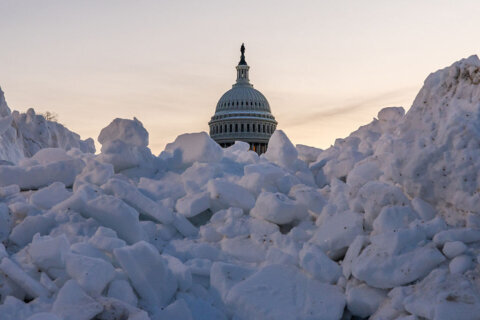D.C., Maryland and Virginia didn’t make the grade in a new American Lung Association report that examined restrictions on access to flavored tobacco products and vaping among kids.
In the District, there are no restrictions around flavored products, a concern Aleks Casper, director of advocacy, says the American Lung Association is working alongside local lawmakers to change.
“The District does receive an ‘F’ there. We know that people who are primary using these products are youth. We have one in five teens that are vaping,” Casper said.
Maryland and Virginia also received “F” grades for having no state laws or regulations around vaping.
“It’s really important that our local jurisdictions are taking action when it comes to flavored tobacco products,” Casper said.
Casper said the District has taken some major steps by implementing the highest tax rate for tobacco products in the nation.
“The more we increase the price of tobacco products, the reduction you see in consumption and I think the counsel was very methodical about that,” she said.
According to the report, CDC data showed that vaping among kids nationwide had a “promising” decline in 2020 after two years of massive increases, dropping from 27.5% in 2019 to 19.6% among high school students and from 10.5% to 4.7% among middle school students.
Overall tobacco use among high school students declined from 31.2% in 2019 to 23.6% in 2020, the report said.
But there is a downside: The use of disposable e-cigarettes “skyrocketed by 1,000% among high school e-cigarette users (from 2.4% to 26.5%) and 400% among middle school e-cigarette users (from 3% to 15.2%). Flavored e-cigarette use among current e-cigarette users also increased from 71.7% to over 82.9% among high school students and from 59.9% to 73.9% among middle school students.”
D.C. and Maryland both received an “A” for smoke-free air. Virginia received an “F” in the same category.
When looking at funding for prevention and treatment, Maryland failed for allocating only 26% of the CDC’s recommended funding — $12.5 million out of $48 million.
Virginia also failed, setting aside $10.1 million out of a recommended $91.6 million.
The District came in at $2.8 million instead of $10.7 million.
“Any effort that we can increase funding for those efforts is critically important,” Casper added, but she said they are confident grades will improve drastically next year, especially in the area of regulations around flavored tobacco products.
The federal government got a mixed report card. It got a “D” for tobacco regulation, a “D” for cessation coverage (preventing people from starting and helping people quit), an “F” on taxing tobacco products, but received an “A” for mass media campaigns and an “A” for maintaining a minimum age for tobacco sales at 21.









